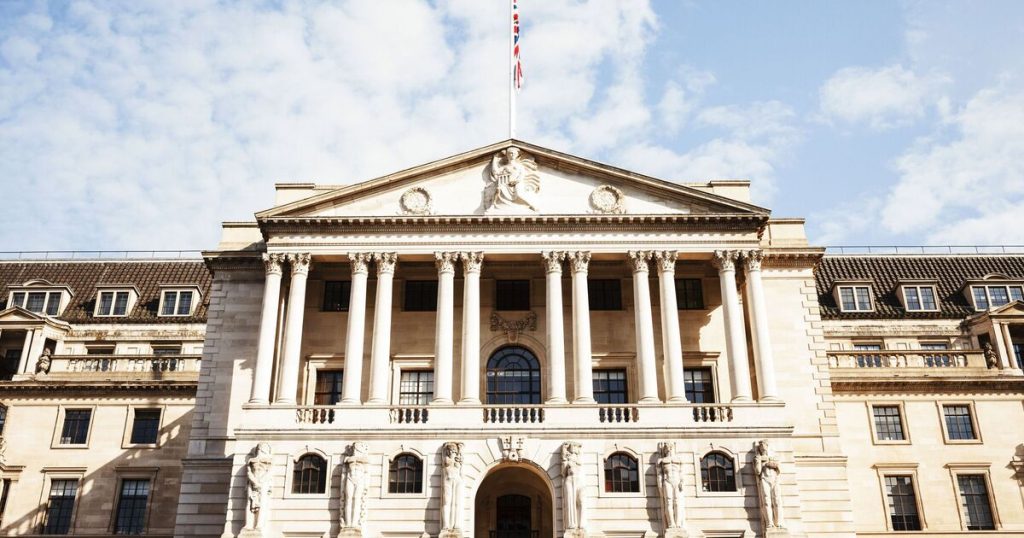
Families and businesses hoping the Bank of England will make swift and deep cuts in interest rates to head off a recession have been rejected by economists.
Experts at the EY ITEM Club predict the Bank’s Monetary Policy Committee (MPC) will reduce the base rate, which currently stands at 4.75 percent, only “relatively slowly” through this year.
The warning came on the back of a new survey from the Halifax, which found average house sale prices fell slightly – by 0.2 percent in December versus November – which was the first fall in nine months.
Despite the fall, the Halifax said over the full year there was a relatively modest increase in average house prices of 3.3 percent.
Recent GDP data, which looks at growth in the UK economy, showed small falls in the second half of 2024 and some experts fear the UK could be heading recession. This has been fueled by business leaders who say tax changes in the Budget will hit investment and employment.
As a result, there has been pressure on the Bank of England to push ahead with cut in interest rates to promote spending and growth.
This pressure has been countered by concerns about rising inflation, caused by increases in wages, energy and food prices.
Matt Swannell, Chief Economic Advisor to the EY ITEM Club, said: “Compared to late summer, financial markets now expect fewer interest rate cuts, partly reflecting the implications of the UK Autumn Budget and the US presidential election.
“In response, quoted new mortgage rates rose a little towards the end of last year, although the interest rates on new mortgages are still below the levels seen in the first half of 2024.”
Looking ahead, he said: “Beyond the next few months, the EY ITEM Club expects the Bank of England to lower interest rates relatively slowly through 2025, settling at rates above those seen pre-pandemic.
“Given the fact that housing valuations remain quite high, this will likely lead to only a gradual improvement in housing market activity.”
Mortgage brokers expressed surprise at the dip in average sale prices in December. They said that demand from buyers has been strong because people are keen to complete purchases before changes to stamp duty in April, which will add thousands of pounds to the cost.
Katy Eatenton, Mortgage & Protection Specialist at Lifetime Wealth Management, told Newspage: “Demand was phenomenally strong in December so I’m slightly surprised that prices edged down marginally.
“The phone rang all the way up to Christmas Eve and continued to ring between Christmas and the New Year as people sought mortgages to buy their homes.
“There is still the potential for a mini rate war in January, which will further boost activity levels if it does materialise.
“The stamp duty deadline is definitely one contributor to the unseasonal demand in December but we are seeing activity all the way up the property ladder as people want to be in their new homes by the spring ready for the summer.
“Affordability remains a challenge but if rates continue to improve, that will provide some support.”
Craig Fish, Director at Lodestone Mortgages & Protection, said: “December is always a hard month to read too much into so this data should be taken with a pinch of salt.
“If interest rates drop as expected in 2025, then it’s likely that prices will continue to rise. We also expect to see an uptick in mortgage approvals during the year as mortgage affordability slowly improves.
“It may not feel like it but there are reasons to be optimistic given expected cuts to the base rate.”






